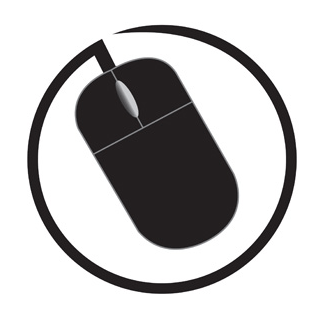Are you looking to enhance your productivity and get more done in less time? Here, you will find 10 powerful tips to maximise your time and get the most out of your day. Learn how to work smarter, not harder. These tips will take your productivity to the next level…
1. Organise Your Workspace for Better Productivity
Declutter and Organise
A cluttered workspace can lead to distractions and a decline in productivity. Start by decluttering your workspace, getting rid of any unnecessary items, and organising the essentials. Invest in storage solutions such as shelves, drawers, or desk organisers to keep things tidy and easily accessible. The faster you can find something, the faster you will complete your task.
Prioritise Your Tasks
Once your workspace is organised, it’s easier to focus on your job. Make a list of your daily tasks and prioritise them based on urgency and importance. Utilise tools like the Eisenhower Matrix to distinguish between what’s important and what’s urgent, ensuring that you tackle high-priority tasks first.
Create a Daily Schedule
Establishing a daily schedule can help you structure an effective workday. Allocate specific time slots for different tasks and include regular breaks to avoid burnout. This will help you stay on track and manage your time more efficiently, which will increase your overall productivity.
2. Eliminate Distractions
Identify Common Distractions
Identifying common distractions is the first step towards eliminating them. Whether it’s social media, chatty colleagues, or a cluttered workspace, recognising these distractions is vital. Once identified, you can take appropriate action to mitigate their impact on your productivity.
If you are working to a project deadline, turn off your email and chat notifications. If you need to focus and the office is noisy, find an alternative location.
Set Boundaries
You need to set boundaries to minimise distractions. Communicate your need for uninterrupted focus to colleagues and establish specific timeframes when you don’t want to be disturbed. By doing this, you create a conducive work environment that respects your need to concentrate.
Utilise Technology to Stay Focused
Technology can be a double-edged sword when it comes to productivity. If you apply it the right way, it can help your progress rather than hinder it. There are various apps and tools that are designed to help you stay focused, such as website blockers and productivity apps. With these tools, you can minimise digital distractions and maintain your focus all day.
3. Time Management
Use the Pomodoro Technique
The Pomodoro Technique is a time management method that involves breaking work into intervals. Traditionally 25-minute blocks of working time, separated by short 5-minute breaks. This technique helps improve your focus by allowing your mind to rest intermittently.
As a writer, I often use this method to boost my efficiency. It’s a great way to track my output and measure how many words per block I can produce.
You can learn more about the Pomodoro Technique here.
Set Realistic Deadlines
One of the key elements of productivity is effective time management. You need to set realistic deadlines for your tasks and projects. By establishing achievable timelines, you can avoid getting overwhelmed and hindering your productivity. There are many apps and software that can help you manage your projects timelines.
When setting a deadline, allow time for any unforeseen circumstances that could arise. If you feel your deadline is not achievable, reassess it and keep an open communication with everyone it may impact.
Delegate Tasks When Possible
Delegating tasks is a valuable time management strategy, allowing you to focus on high-priority responsibilities and prevent burnout. By leveraging the skills of others, you can develop a more efficient workflow. The overall quality of work can be better too, as you have the energy to apply your best efforts instead of trying to juggle several tasks at a sub-standard level.
4. Take Regular Breaks
Importance of Breaks
Taking regular breaks throughout the day keeps your mind more active. Research shows that frequent short breaks prevent decision fatigue and helps us maintain a higher level of performance. By taking regular breaks, you give your brain the opportunity to recharge and refocus, leading to improved cognitive function and better productivity overall.
Incorporate Physical Activity
Incorporating exercise into your breaks can have a significant impact on your productivity. Whether it’s a short walk, stretching exercises, or some quick yoga poses, physical activity boosts blood flow, reduces stress, and increases energy levels. It can also help you combat the negative effects of prolonged sitting, which is common in many work environments.
Mindfulness and Meditation
Practicing mindfulness and meditation during breaks can clear the mind and reduce stress. Take a few moments to focus on your breath or engage in a short meditation to improve you concentration and cognitive function. It can be beneficial to apply mindfulness techniques when you are overwhelmed, allowing you to return to your tasks with a renewed sense of purpose.
5. Improve Decision Making
Gather Necessary Information
To improve decision making, you need to gather all necessary information before making a choice. This means seeking out reliable sources, conducting thorough research, and considering all relevant factors. Having an informed decision-making process reduces the likelihood of oversights or poor choices.
Evaluate Options
Once the necessary information is gathered, the next step is to evaluate the options. You need to consider the pros and cons of each alternative, weighing their potential outcomes, and assessing how they align with your goals. By systematically evaluating options, you can become more strategic in making decisions.
Learn from Past Decisions
Learning from past decisions is crucial to improving your decision-making. Reflecting on previous choices, understanding their consequences, and identifying areas for improvement contributes to better decision making in the future. It allows you to apply the lessons learned, thereby refining the decision-making process over time.
6. Enhance Communication Skills
In a fast-paced work environment, enhancing communication skills is necessary for productivity. Effective communication is achieved by active listening, as follows:
Active Listening
Active listening involves giving the speaker your full attention, maintaining eye contact, and being open to their viewpoints. It demonstrates respect, builds rapport, and ensures a clear understanding of the tasks and goals. Through active listening, you will remember what is being said and minimise risk of misunderstandings or disagreements.
Visit MindTools for more information on active listening.
Effective Email Management
Managing emails efficiently is crucial. You can achieve this by:
- Categorising emails
- Flagging specific emails with deadlines
- Set specific times for checking and responding to emails
- Use tools like filters and folders to streamline the email communication process
- Set up rules to automatically file non-urgent emails such as bulletins and newsletters. This will minimise distractions and you can still access them from a specific folder when you have time for a catch-up read.
Constructive Feedback
Providing and receiving constructive feedback is a fundamental part of effective communication. Constructive feedback should be specific, focused on behaviours or actions, and aimed at improvement. It can lead on from evaluating past decisions to find ways to improve. Most importantly, it promotes a culture of learning and growth within a team, ultimately improving productivity.
Collaboration
Effective collaboration involves clear communication, active listening, and mutual respect. By forming an environment where team members feel comfortable sharing ideas and opinions, you can improve productivity and innovation. Using collaboration tools also helps the team communicate and input.

7. Utilise Productivity Tools and Technology
In today’s fast-paced world, using technology and tools can significantly enhance your productivity. Here are some essential resources to streamline your workflow:
Project Management Software
Implementing project management software such as Trello or Asana can help you organise tasks, set deadlines, and collaborate easily with the team. Use Microsoft Teams for meetings and working on shared documents.
These platforms provide a visual overview of your projects, making it easier to prioritise and allocate resources effectively.
Automation and Workflow Tools
Tools like Zapier and IFTTT allow you to automate repetitive tasks, saving time and reducing errors. By creating custom workflows, you can integrate various apps and automate processes, thereby boosting productivity. These tools free up valuable time so you can focus on more complex tasks.
Cloud Storage and Collaboration Platforms
Using cloud storage services such as Google Drive or Dropbox provides secure and convenient access to files from anywhere. This promotes a seamless collaboration among team members. Many of these platforms allows real-time editing and feedback, so you don’t have to worry about version control issues.
By harnessing the power of these technological resources, you can optimise your workflow and minimise your manual input.
8. Continuous Learning and Development
Set Personal and Professional Goals
To boost productivity, its important that you are always learning and developing. You can achieve this by setting personal and professional goals – establish clear objectives so you can align your efforts towards a specific outcome. Whether it’s acquiring a new skill, gaining industry knowledge, or enhancing leadership abilities, setting achievable goals gives you a roadmap for growth.
Engage in Skill Development
Actively engage in skill development such as online courses, workshops, or practical experiences, to hone your skills. It’s a continuous process and platforms such as Udemy offer a wide range of options. They have professional development courses from project management to digital marketing. If you develop a mindset of seeking continuous improvement, you can stay ahead in your respective field.
Seek Feedback and Mentorship
Seeking feedback and mentorship is a valuable part of learning. Constructive criticism and guidance from experienced professionals can provide fresh perspectives and insights. Try and enhance the wheel rather than reinvent it. Mentors can be supportive, guiding you through obstacles and showing you ways to improve your productivity.
Constant feedback = improved learning and skills.
9. Healthy Lifestyle Habits for Productivity
Balanced Nutrition
Eating a well-balanced diet impacts your ability to maintain a high level of productivity. Junk food can make you feel sluggish, spike your insulin, and cause sugar crashes. Processed meats, sugary food and caffeine have been linked to raising cortisol levels. These are stress hormones which can directly impact your productivity.
Incorporating a variety of fruits, vegetables, lean proteins, and wholegrains can provide the body with the necessary nutrients to keep your energy levels up. Fish with omega-3 acids, flaxseeds and walnuts can support your brain function and overall wellbeing. Discover how you can boost your energy with superfoods and access some delicious recipes here.
Get a Decent Sleep
Quality sleep is paramount for productivity. If you don’t get enough sleep, it affects your cognitive functions, memory, and mood. It is another culprit that causes an increase in cortisol (stress hormones).
Aim for 7-9 hours of uninterrupted sleep each night to improve your brain, mood, and concentration. Consider implementing a calming bedtime routine to signal to your body that it’s time to wind down. Incorporating meditation can do this, and this relaxing range of meditation music is a great way to drift off to sleep.
Establish a consistent sleep schedule and you will see a significant impact on your productivity levels.
Regular Exercise Routine
Exercising regularly will boost your productivity as it stimulates the release of endorphins. This enhances your mood and brain function, making it easier to face work and get the most out of your day. Whether it’s a brisk walk, yoga, or strength training, finding an activity you enjoy will make a substantial difference to your overall performance.
10. Review Your Productivity Progress
Always reflect on your progress, which strategies are working, and which aren’t. If you are struggling to get going in the morning, consider why: do you need to adjust your sleep routine? Incorporate a morning workout to get stimulated? Alter your breakfast to something with more substance?
>> Discover how to create a winning morning routine <<
If you aren’t getting through your tasks consider your environment, what changes can you make? If you are restricted from making physical changes, consider using tools to help you and communicate with your boss on how you would like to increase your productivity.
Set aside time to assess your progress, focusing on the goals you’ve set and the steps you’ve taken toward them. Are you making the progress you’d planned or is there room for improvement? Look at what can be adjusted and how to manage your time and stay focused.
By reviewing your productivity in this way, you will be better equipped to make impactful changes that well help you move forward.
Let Your Productivity Soar
By incorporating these 10 productivity tips into your daily routine, you can completely transform your productivity. Prioritising tasks, minimising distractions, and optimising your work environment can supercharge your output, achieving more in less time.
Remember, consistency is key, so make a commitment to implement these strategies to get the full benefits. Here’s to a more productive and fulfilling work life!

